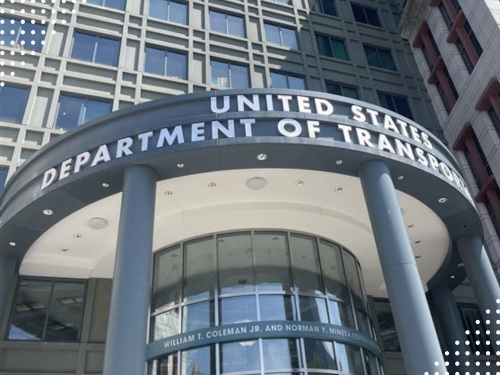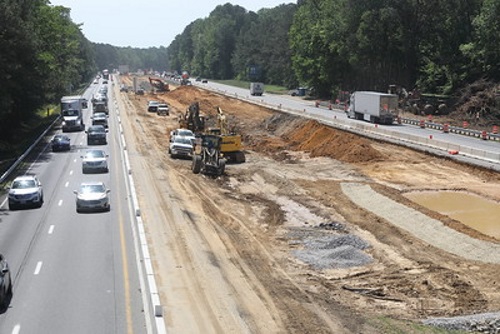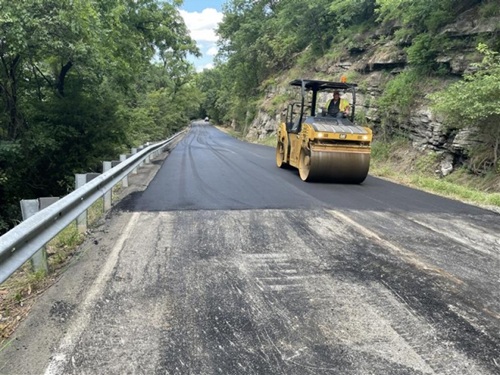An annual survey conducted by the Mineta Transportation Institute finds that 53 percent of Americans support the concept of a vehicle miles travelled or VMT “green mileage” fee that would charge drivers an average rate of three cents per mile driven, with lower rates for less polluting vehicles and higher rates for more polluting vehicles.
[Above photo by VDOT.]
The MTI said those findings – from the group’s 12th annual survey exploring public support for federal transportation taxes and fees – come at a time when U.S. Transportation Secretary Pete Buttigieg, as well as Congressional Democrats and Republicans, are openly discussing a VMT fee as a possible replacement for traditional motor fuel taxes.

The MTI said its annual survey – based on a nationally representative sample of 2,516 adults living in the United States polled online between February 5 and February 23 – continues to show “steadily increasing growth” for mileage fees.
For example, in 2010 – the first year of the survey series – the institute said support for a “green mileage” fee only reached 33 percent. This year’s 53 percent, by contrast, support is 20 percentage points higher.
MTI added that its 2021 survey also found that close to two-thirds (62 percent) of respondents thought that if Congress adopts a mileage fee, low-income drivers should pay a reduced rate.
Other key 2021 MTI survey findings concerning mileage fees include:
- Just more than half of respondents (52 percent) thought mileage fee rates should be lower for electric vehicles than for gas and diesel vehicles.
- If Congress were to adopt a federal mileage fee to replace motor fuel taxes, three quarters (76 percent) of respondents would prefer to pay monthly or when buying fuel or recharging a vehicle. By comparison, only 24 percent said they would prefer to pay an annual bill.
- Approximately half of respondents supported the idea of a “business road-use fee” that would be assessed on the miles that commercial vehicles drive on the job: 52 percent of people supported such a fee on delivery and freight trucks, with 50 percent supporting such a fee on ride-hailing vehicles and 49 percent supporting such a fee on taxis.
Over the last several years, various groups recommended a changeover to VMT fees in lieu of fuel taxes to help pay for the upkeep of the nation’s transportation system.

A consensus study issued by the National Academies of Sciences, Engineering, and Medicine in December 2018 recommended a long-term changeover to tolling and vehicle miles traveled or VMT fees to generate funding to maintain the U.S. interstate system.
The National League of Cities released a report in March 2019 to help local governments understand and establish road-user charge or RUC pilot programs – another name for VMT fees.
Several state departments of transportation are also working on VMT and RUC projects.
In January, with support from a federal grant, the Oregon Department of Transportation said it would begin pilot testing the state’s pay-per-mile RUC system – known as OReGO – at the city and county level.
In November 2020, the California Department of Transportation beefed up its RUC pilot testing work by launching a six-month demonstration project, building off its 2017 Road Charge Pilot.
More broadly, the Federal Highway Administration recently awarded $18.7 million in Surface Transportation System Funding Alternatives or STSFA grants to eight projects to test new user-based funding methods for highways and bridges.
Those projects – led by six state DOTs and two transportation coalitions – will explore a variety of ways to provide long-term fiscal support to the Highway Trust Fund.
 Nation
Nation


